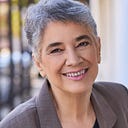
Member-only story
Writing Single Life: A Manifesto for the Bold and Fearless
I read 7 engaging memoirs by single women. One of them was a masterpiece — an unapologetic embrace of single life that was equal to the moment of what it means to be single in the 21st century.
I’m a social scientist and for two decades, I have been conducting and inhaling research on single life. Results from the most sophisticated studies show that over that time period, single people have become more and more enthusiastic about their single lives. And, in defiance of all stereotypes, people who stay single grow even happier as they age. As they sail past their early and middle adult years, women in particular have three cultural strikes against them — they are old, they are single, and they are women — and yet, they are thriving.
Throughout the 21st century, I have been in search of memoirs that show how far single women have come. I wanted to read the life stories of women who are living in blissful defiance of the fairy tales about marriage and children. I wanted to hear from single women who never did swallow the mythology that popular culture and even some serious thinkers were selling, that only by marrying and having children would they be truly happy and deeply fulfilled.
My quest got off to a rocky start, with three memoirs that were beautifully written and full of insights. All three women were brilliant, but their early takes on single life were not.
In No One Tells You This, Glynnic MacNicol proclaimed, “It was a truth universally acknowledged that by age forty I was supposed to have a certain kind of life, one that, whatever else it involved, included a partner and babies.” On the eve of her fortieth birthday, though, MacNicol had no spouse and no children. She felt like a person “being marched to her demise.”
By the end of the book, MacNicol was “quite thrilled” with her life as a single woman with no kids. But it took her forty years before she ever “bothered to seriously question whether I actually wanted to be married with kids.”
Catherine Gray’s father started calling her a spinster when she turned thirty-three. That was devastating. A self-described “raging love-addict,” Gray used to believe, in all seriousness, that “being single means I’m broken, I’m worthless.” By the end of…
